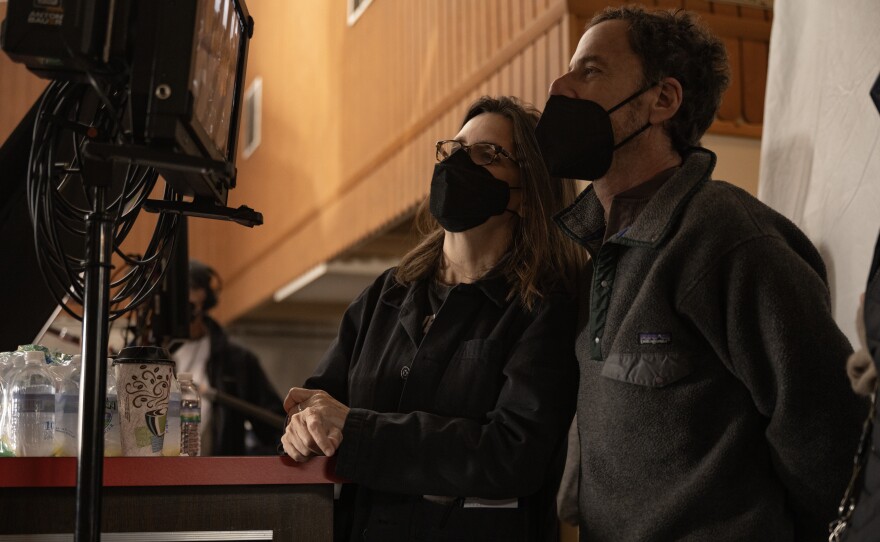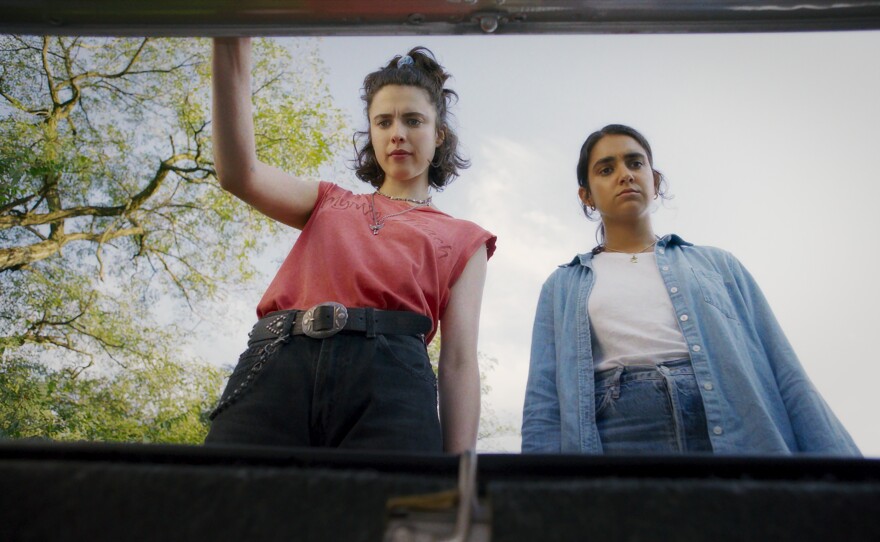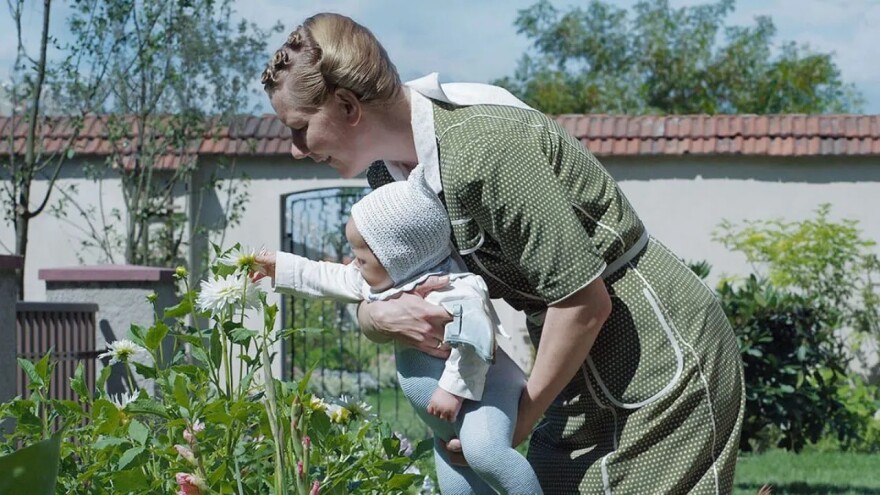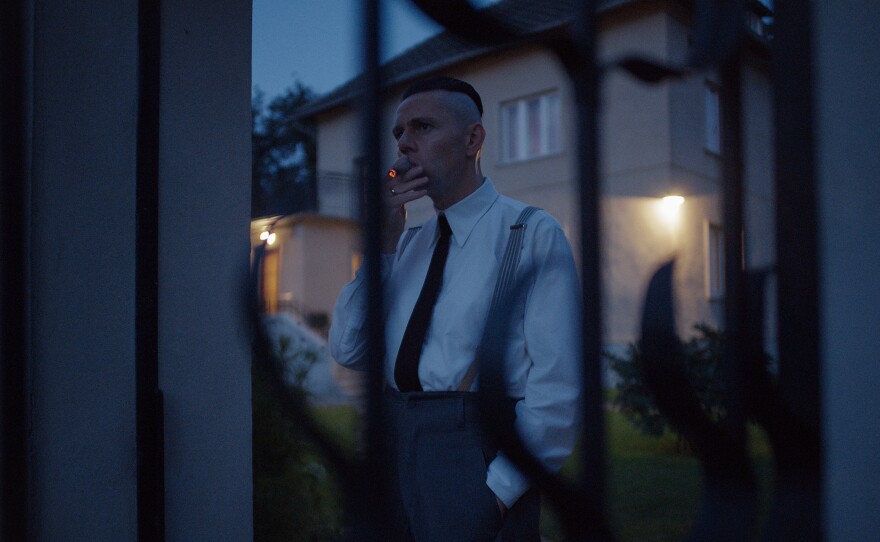Your film choices are wildly diverse this weekend as Ethan Coen's "Drive-Away Dolls" (now playing throughout San Diego) offers a wacky joy ride and Jonathan Glazer's "The Zone of Interest" (now playing at Digital Gym Cinema) is a relentless exploration of the banality of evil.
"Drive-Away Dolls"
Two years ago Joel Coen made "The Tragedy of Macbeth" without his brother Ethan. Now Ethan has gone solo with "Drive-Away Dolls." But together or apart, a Coen film is always worth your attention.
Joel's "The Tragedy of Macbeth" had the craftsmanship and precision of a Coen brothers’ film but served up a completely different vibe with its black and white take on Shakespeare's tragedy. With "Drive-Away Dolls," Ethan leaves his sibling on the side of the road but delivers a film that has the pace, weirdness, and gallery of wacky characters that you have grown to expect in their collaborative works like "Fargo" and "Raising Arizona."

While the brothers have, at least for now, parted creative ways, their films are still family affairs. Joel cast his wife Frances McDormand as Lady Macbeth while Ethan co-wrote "Drive-Away Dolls" with his wife Tricia Cooke.
"Drive Away Dolls" is set in-motion by a nervous man (Pedro Pascal) clutching a mysterious case. Whatever is inside the case, it is something people are ready to kill for. But that part of the story gets put on hold so we can meet Jamie (Margaret Qualley) and Marian (Geraldine Viswanathan). The wild and free-spirited Jamie has just broken up with her cop girlfriend while the more restrained Marian is about to set off for a trip to Florida. Jamie suggests they head off on a road trip together and get a drive-away car. But the car has the mysterious case and that sets a pair of inept thugs on their trail.

The case has the aura of the mysterious valise from "Kiss Me Deadly" (or for younger audiences the case in "Pulp Fiction") but its contents are much funnier and less deadly. Visually the film is equal parts garish noir, Looney Toons, trippy flashbacks and raucous road movie. Now that each brother had made a solo film you can start to see what each brought to the creative partnership and how they enhanced each other. But their shared trait seems to be precision craftsmanship even when the material feels entirely chaotic. This film is also a reminder that the Coens have a lineage back to Sam Raimi and the crazy film "Crimewave" (from 1985, which places it between "Blood Simple" and "Raising Arizona").
"Drive-Away Dolls" is a raunchy, queer joyride, fueled by dark humor and frenetic energy. It takes a few unexpected turns, and delivers a spot-on cast of celebrity cameos and great character actors. It doesn’t have a lot on its mind but it offers a most entertaining and fast ride.

"The Zone of Interest"
In sharp contrast, "The Zone of Interest" has a lot on its mind. In fact, it is all about an idea rather than a story. The idea is to explore the banality of evil through a portrait of Rudolf Höss, the real life commandant of Auschwitz, and his wife, Hedwig, as they strive to create a perfect life living next to a death camp.
On the one hand, it is a chillingly brilliant dissection of evil that uses sound design in a boldly effective way. On the other hand, it feels like an intellectual exercise that proves it's thesis almost immediately and then keeps repeating it's obvious point with relentless single-mindedness and no further illumination. For me, it would have worked much better as a short film in which we get just two or three of the strongest scenes so they have an impact, and then end.
Presenting Nazis as the epitome of banal evil is not exactly original even if the presentation occasionally is. Director and writer Jonathan Glazer (whose "Sexy Beast" remains one of my favorites) is not interested in these characters. He doesn't want to probe their psychology. And he's not interested in exploring how someone could function or live with the level of dissonance required to run a death camp like Höss does. Glazer is just here to show us how shocking it all is. And he is correct. It is shocking. But for a feature film, it is hard to sustain that one-note and keep the audience engaged. He is not asking us to think about how people could possibly live like this, or how we can learn to prevent it. He is not asking us to think about anything, but rather just to react with horror.

Despite some frustrations with the approach, I still recommend "The Zone of Interest" if only for the stunning sound design that becomes a character all its own and conveys the horror that lies just beyond the well groomed garden and its protective walls. That sound design is the reason to seek this out in a cinema.





